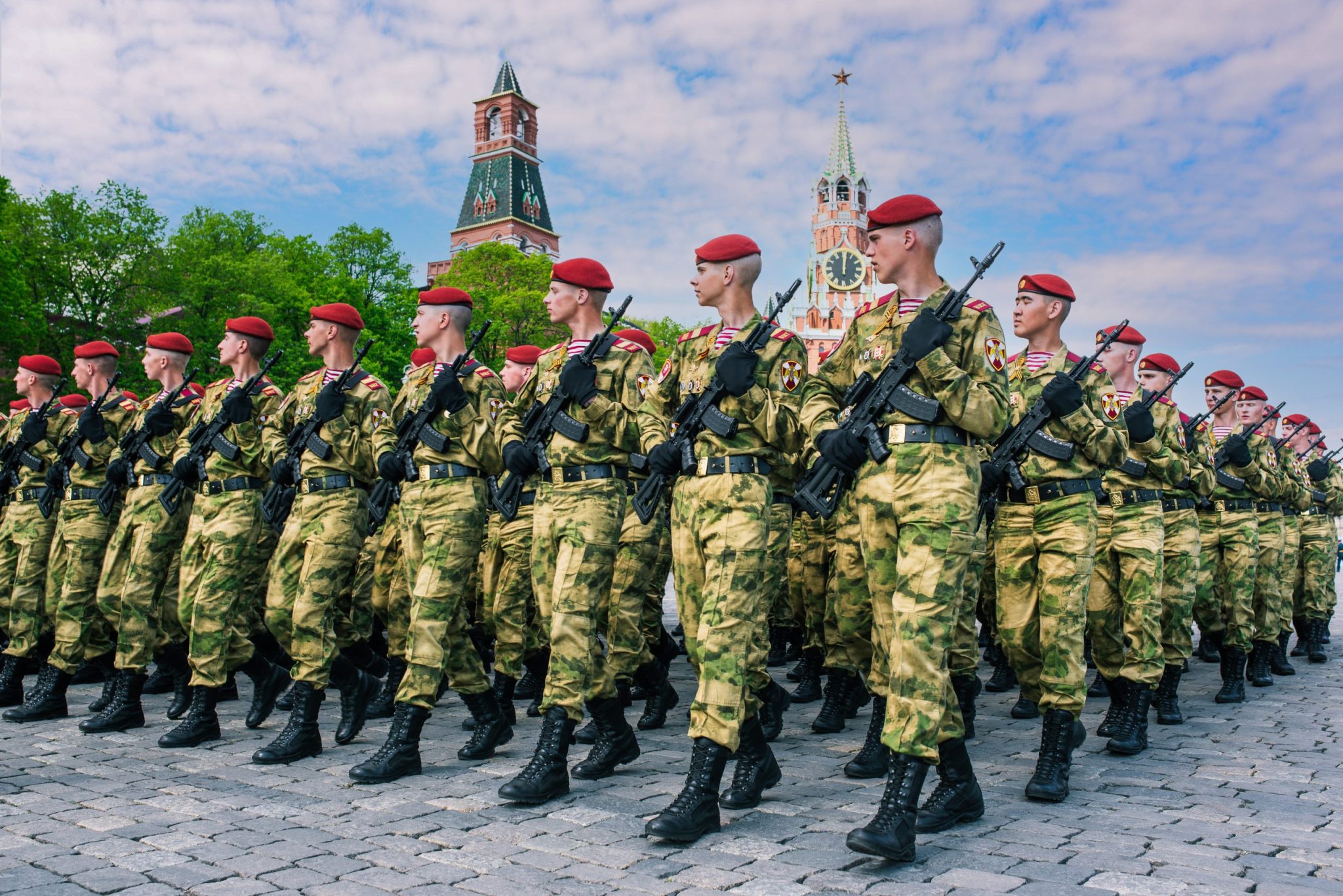Ukraine’s recent “Spider’s Web” operation surprised the Kremlin and sent shockwaves from targeted military airfields to destinations far away from the frontline. Even though the final number of destroyed and damaged military planes decreased by half from an initial estimate of 40 to roughly 20, Ukraine managed to inflict substantial damage on strategic bombers using small tactical drones. This latest attack in a series of daring David-versus-Goliath operations put Russian military officials in an awkward position, especially on the eve of ceasefire negotiations scheduled between Russia and Ukraine in Istanbul, Türkiye.
ASD’s Russian Military Bloggers Dashboard, which tracks the outputs of notable war bloggers, sometimes referred to as “Z-bloggers”, on Telegram, revealed some of the domestic reaction to this attack. In addition to expected criticism of Russia’s military command and appeals to retaliate against Ukraine with strategic nuclear weapons, the dashboard revealed continued frustration with the state’s information response to unexpected setbacks on the battlefield and efforts to attribute the attack to the United Kingdom.
Criticism of Russia’s Military Command
Military bloggers blamed high-ranking officials for failing to properly protect strategic bombers and offered various solutions to address this negligence, ranging from promoting younger staff to repression reminiscent of the Stalin era. Military correspondent Yuri Kotenok wrote that, in 2021, then-Russian Minister of Defense Sergei Shoigu advocated for the construction of hangars, yet four years later military officials used automobile tires placed on airplanes’ wings to protect them from drone attacks. Other bloggers also blamed Russia’s intelligence, aerospace forces (especially Commander-in-Chief Viktor Afzalov), and a reckless attitude toward the defense of aircraft despite previous attacks on strategic bombers. Searching for improvement, military correspondent Alexander Sladkov advocated for strict government control over military production, blaming the so-called “garage military production complex” for enabling Ukrainians to assemble drones at a rented warehouse in Russia. Other Z-bloggers suggested replacing old commanders with “young, daring, and promising” ones, noting that, unlike the Russian armed forces, those in Ukraine support entrepreneurship. Still other military commentators saw no other way to overcome bureaucracy except for a revival of Stalinist efforts.
Criticism of Russia’s Information Response
War correspondents and analysts bemoaned the lost information battle and heavily criticized state media’s response to the attacks on bridges and airfields. Likely because the attacks occurred on Sunday, June 1, the eve of the Istanbul negotiations, no official comment came until hours after the attack, creating an information vacuum that was quickly filled with narratives promoted by the Ukrainian side. Thus, military bloggers correctly noted that the number of destroyed planes was lower than initially claimed but falsely claimed that drones attacked two, not four, airfields. Shortly after the attack, social media users circulated a video likely generated by artificial intelligence that featured multiple charred military jets, leaving Z-bloggers scrambling to debunk it. According to Rybar and Dva Majora, popular military blogs, the Russian Armed Forces Main Operational Directorate requested that military Telegram channels, television stations, and other news media stop discussing the attacks. Other bloggers complained that media initially described Ukraine’s attacks as “accidents”, “a bridge collapse”, a “derailment”, and an “ignition that is already extinguished”, when they should have been labeled “terrorist attacks”. Military expert Vladislav Shurygin speculated that Danwatch and Der Spiegel’s publications about Russia’s nuclear weapons facilities at the end of May might have helped the Ukrainian military to identify strategic bombers.
Calls for Retaliation and Nuclear Escalation
Military bloggers emphasized the importance of a strong military response, even if they questioned officials’ ability to initiate one, and avowed that the attack on strategic bombers brought the conflict to a new, nuclear level. Yuri Kotenok suggested that NATO countries might have assisted Ukraine “to break the nuclear parity”, meaning that Russia must respond forcefully to prevent the attack from becoming a military and political defeat. Dva Majora declared that the attack was a reason to start nuclear strikes on Ukraine or other countries would believe that anyone could attack Russia’s strategic bombers without consequence. Other bloggers envisioned retaliation in the form of destroyed Ukrainian infrastructure or the assassination of local and foreign leaders. At the same time, several war bloggers questioned whether Russia had the political will to retaliate, while reminding the political establishment that the Russian people do not accept weakness, half-baked decisions, or the inability to correct mistakes.
Impact on Ceasefire Negotiations
Z-bloggers almost unanimously condemned continuing ceasefire negotiations, warning that the attacks buried all peace initiatives and rendered them “meaningless” and a “national humiliation”. Rybar described the situation as a “Zugzwang”, a situation in chess in which it is disadvantageous for a player to move even though they are compelled to do so. By this logic, if Russia continued negotiations as usual, it would signal political weakness. But if the Kremlin escalated the conflict, there would be no guarantee that the country could emerge victorious from greater political and military confrontation. Bloggers also speculated that adversaries were trying to push Russia toward escalation on purpose so that it would accept a 30-day ceasefire and pause its battlefield advances. Dva Majora proclaimed that the ceasefire negotiations had already failed and that Ukrainians were inflicting maximum damage on Russia as Europe prepared for a possible attack. They therefore proposed that the Russian delegation should have presented at the Istanbul talks not a memorandum, but an ultimatum: If Ukraine does not capitulate, Russia would use strategic nuclear weapons.
Blaming UK and US Involvement
Blaming the United Kingdom for helping Ukraine with the attacks became another point of consensus for Russian military bloggers, but opinion on US involvement was divided. Rybar suggested that the United Kingdom has far-reaching war plans against Russia and that adversaries use the “NATO playbook” to discredit military officials and terrorize the population. Other bloggers echoed this assessment, claiming that British reconnaissance specialists control the Main Directorate of Intelligence of Ukraine’s defense ministry. Some military analysts also warned that if British intelligence successfully conducted Spider’s Web with the help of “stupid” Ukrainians, Russia might not be able to withstand direct confrontation with the United Kingdom. As for US participation, Dva Majora was certain that US President Donald Trump knew what Ukraine would do, while another pro-war Telegram channel, Zergulio, alleged that, while the UK special services were conducting their operation from the stage, the United States was watching from orchestra seats. At the same time, one blogger noted that US Secretary of State Marco Rubio was the only Western politician to acknowledge that an attack on a passenger train in Russia amounted to an act of terror, while another speculated that European partners, especially France, likely helped Ukraine so that they could undermine Trump during ceasefire negotiations.
Lessons and Opportunities
The reaction of Russian military bloggers toward Ukraine’s attacks on bridges and strategic bombers reveals several important trends in Russia’s information space and offers opportunities to exploit some of those trends. First, Russia’s military and information bureaucracy is still slow and rigid, unable to quickly react to unexpected, outside-the-box developments on the battlefield. This was the case with the Wagner Group mutiny in 2023 and the Ukrainian invasion of the Kursk region in 2024. These attacks confirmed that nothing has changed. Meanwhile, the initial absence of official information allowed Ukraine to seize the narrative and infiltrate Russia’s information space, demonstrating a first-mover advantage that allowed them to sow panic, discord, and discontent.
Second, Russia’s relatively muted kinetic retaliation demonstrates that, despite repeated threats of using strategic nuclear weapons, its belligerent rhetoric to date is merely part of its information and psychological warfare. While Russia launched massive drone attacks on Ukrainian cities after the Spider’s Web operation, they were commensurate with previous drone and missile attacks, supporting bloggers’ fears that the Kremlin has limited capacities to escalate the war. Russia continued negotiations in Istanbul, which did not bring about a ceasefire, but did return Ukrainian soldiers, alive and dead, to their families. Given the lack of development during the negotiations before the attack, it is hard to say that Ukraine’s operation in any way undermined or altered their progress.
Lastly, the bloggers’ posts clearly reveal shifting sentiments toward Russia’s adversaries, with the United Kingdom and the EU’s replacing the United States as the Kremlin’s major adversary. After Spider’s Web, Russia’s Foreign Intelligence Service accused British intelligence agencies of developing and providing operational support to Ukraine for future “bloody provocations”, including subversive and terrorist activity against Russia. However, Z-bloggers were more cautious toward the United States, acknowledging that Washington remains an enemy even if the current administration is less supportive of Ukraine than its predecessor.
The views expressed in GMF publications and commentary are the views of the author alone.





